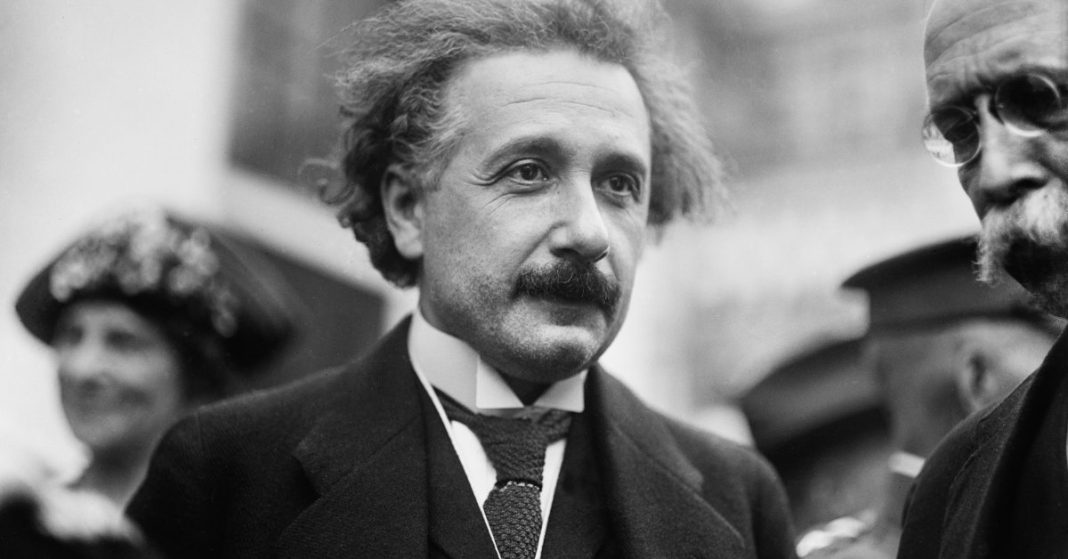Scientists, inventors, mathematicians, and physicists have already existed centuries ago and the contributions they have made to the world of science, math, and other fields have made a major impact on the lives of so many people. Here are the top ten greatest scientists in history.
1. Michael Faraday
Michael Faraday, an English scientist, was born on September 22, 1791, in Newington Butts to a poor family. He contributed a lot to the fields of electromagnetism and electrochemistry. His most notable discoveries were electromagnetic induction, diamagnetism, and electrolysis.
He also discovered benzene and invented an earlier form of the Bunsen burner. Although he only received basic education in his youth, he was one of the most influential scientists in history. He died on August 25, 1867.
2. Thomas Edison
It was from Thomas Edison, where the lines “Genius is 1% inspiration and 99% perspiration”, came from. He was an American inventor and businessman, born on February 11, 1847, in Milan, Ohio.
He is the man behind the phonograph, motion picture camera, and the famous light bulb. His inventions have greatly contributed to mass communications and telecommunications. He died on October 18, 1931, from diabetes complications.
3. Nikola Tesla
Nikola Tesla, a Serbian American inventor, was born on July 10, 1856. Aside from being an inventor, he was also an electrical engineer, mechanical engineer, physicist, and futurist. He made a major contribution to the alternating current electrical supply system model that is used today.
He was well known for his achievements and was often dubbed an archetypal mad scientist. He died on January 7, 1943.
4. Sir Isaac Newton
Sir Isaac Newton was an English physicist and mathematician, who was also recognized as one of the most influential scientists in history. He formulated the laws of motion and universal gravitation in his book Philosophiae Naturalis Principia Mathematica. He also invented the first reflecting telescope and developed a theory of color.
Newton has also made other studies regarding the speed of sound, formulated the empirical law of cooling. Together with Gottfried Leibniz, they developed calculus. He died on March 20, 1726.
5. Louis Pasteur
Louis Pasteur was a French chemist and microbiologist, born on December 27, 1822. He was famously called the Father of Microbiology for his discoveries on vaccination, microbial fermentation, and pasteurization. Pasteur created the first vaccines for rabies and anthrax and has made dozens of breakthroughs in the cause and prevention of diseases.
He also invented the technique of fermenting wine and milk to prevent bacterial contamination. His inventions have lowered mortality rates ever since. He died on September 28, 1895.
6. Galileo Galilei
Galileo Galilei was an Italian astronomer, engineer, philosopher, mathematician, and physicist. He was born on February 15, 1564 Pisa, Italy. His most notable works were the improvements he applied to the telescope and his support for heliocentrism.
He observed the different phases of Venus, discovered the four largest satellites of Jupiter, and also his observations on sunspots. He also made an improved version of the military compass. He died on January 8, 1642.
7. Marie Curie
Marie Sklodowska-Curie was a Polish and a naturalized French physicist and chemist, born on November 7, 1867. She was the first woman to ever win a Nobel Prize for her work on radioactivity.
Her other works also include techniques for isolating radioactive isotopes and her discovery of the elements polonium and radium. She died on July 4, 1937, from aplastic anemia, due to constant exposure to radiation during her research.
8. Albert Einstein
Albert Einstein is a German theoretical physicist. He was born on March 14, 1879 in Ulm, Kingdom of Wuttemberg. He is the man behind the theory of relativity, one of the foundations of modern physics. Einstein is famous for his mass-energy equivalence formula and has been dubbed the most famous equation in the world.
He was also responsible for the foundations of the photon theory of light, as well as explanations of particle theory and motion of molecules. He received the 1921 Nobel Prize in Physics for his discovery of the law of the photoelectric effect. He died on April 18, 1955.
9. Charles Darwin
Charles Robert Darwin was born on February 12, 1809, in Shrewsbury, Shropshire, England. He was an English naturalist and geologist and is famous for his contributions to evolutionary theory.
The theory establishes that all species of life descended from one common ancestor. He also conceived the theory of natural selection. He also made various research on plants and made a study on earthworms on how they affect the soil.
10. Aristotle
Aristotle was a Greek philosopher and scientist in Classical Greece. He was considered the first genuine scientist in history and all scientists are indebted to him. His works were on different subjects including physics, biology, zoology, metaphysics, logic, ethics, aesthetics, poetry, theater, music, linguistics, rhetoric, politics, and government.
Aristotle studies almost every subject and makes contributions to them, this has led him to find new fields of science.
Chemistry, math, biology, and all other fields of science would not be what they are today without the brains of these geniuses, who have contributed their lives and their time to the study of the world and everything in it. Their legacy will and forever live on.
